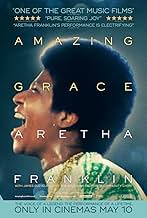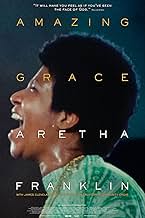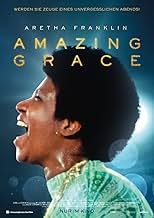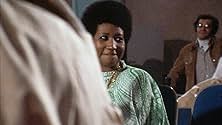Un documental sobre Aretha Franklin y el coro de la iglesia bautista New Bethel en Watts, Los Ángeles, en enero de 1972.Un documental sobre Aretha Franklin y el coro de la iglesia bautista New Bethel en Watts, Los Ángeles, en enero de 1972.Un documental sobre Aretha Franklin y el coro de la iglesia bautista New Bethel en Watts, Los Ángeles, en enero de 1972.
- Premios
- 2 premios ganados y 15 nominaciones en total
- Self
- (material de archivo)
- Self
- (material de archivo)
- Self - Choir Director
- (material de archivo)
- Self - Guitar
- (material de archivo)
- Self - Organ
- (material de archivo)
- Self - Percussion
- (material de archivo)
- Self - Drums
- (material de archivo)
- (as Bernard Purdie)
- Self - Bass
- (material de archivo)
- Self - The Southern California Community Choir
- (material de archivo)
- Self - The Southern California Community Choir
- (material de archivo)
- Self - The Southern California Community Choir
- (material de archivo)
- Self - The Southern California Community Choir
- (material de archivo)
- Self - The Southern California Community Choir
- (material de archivo)
- Themselves - The Southern California Community Choir
- (material de archivo)
- Self - The Southern California Community Choir
- (material de archivo)
- Self - The Southern California Community Choir
- (material de archivo)
- Self - The Southern California Community Choir
- (material de archivo)
- Self - The Southern California Community Choir
- (material de archivo)
Opiniones destacadas
In this documentary by Sydney Pollack, one can see noted people like Mick Jagger seated in the church audience. The interaction of professional studio technicians with actual church goers have an unnerving feel, in the end via Aretha's vocals made them come together. There's a short appearance of Aretha's father, Rev. Franklin who gives a small insight to her childhood.
It's just a wonderful time capsule that has been unearthed for a digital generation to appreciate this musical form. Aretha sings from another plane and sits naturally in this church/recording session like her father says in the film that Aretha Franklin NEVER left the church.
Director Sidney Pollack was hired to document this recording. This film at times seems unfinished or one big revival but that's not why you should buy a a ticket. You're watching sheer talent at hand - raw, unadulterated talent given by God. Aretha in her element joined by the California Community Choir and The Reverend James Cleveland provide the audience a spiritual elevation. This movie isn't about cinematic perfection; it's about touching your soul. Some of my favorite moments are her rendition of "Mary Won't You Weep" and her mash-up of "Precious Lord, Take My Hand, and You've Got Friend" made famous by James Taylor. Only Aretha could turn a secular song and incorporate it into a gospel hymn.
Aretha like most artists of her caliber was a perfectionist and didn't want the movie to be released while she was alive, but I'm glad that her family differed in her view. There is a whole generation that never got to experience this Aretha and now they can.
You will get a chance to see her Father the Reverend C.L Franklin and the tight bond they shared. There are also other celebrities in the building such as Clara Ward, and if you pay close attention, an enthusiastic Mick Jagger is sitting in the back.
This movie is a reverence to a time when black America was no longer defining itself by white standards but firmly standing in its blackness. Aretha was our queen and the church our foundation. She was our refuge our joy our Amazing Grace. All hail the Queen.
Diversity: This movie gets a ten. It doesn't get any blacker than Aretha and gospel music.
Scale: I highly recommend this movie not because Aretha was my favorite singer but because we could use a little spiritual revival during these dark times. A rousing 8 and Amen.
Decades later we learned that it was impossible--with technology available then--to sync up the sound with the film footage and the project had been permanently shelved. The young director, Sydney Pollack, hadn't realized each reel needed a time clapboard for editors to find their way in assembling the footage to properly slate with the live sound recording. Not only that, but Franklin never wanted the film footage to be released (there was heavy post-editing in the audio's final release). So it was with a thunderbolt when we heard people had been working frame by frame to put the sound back in sync with the images (when you watch the film, just imagine what it would be like for an editor to be handed a 10 minute reel and be told "guess where this fits in"; and Pollack used 5 cameras to catch all that was going on with a reported 20 hours of unmarked footage).
It's a miracle to have this film in any form, and not only that but that the director(s) stayed out of the way of what was happening, no fancy edits, or commentary. Nothing but this woman transcending herself and her audience into spiritual ecstasy.
The album only hints at what we finally get to experience. But any performance, much less an entire concert by Ms. Franklin from this era is a gift. She's at her peak and her naturally shy demeanor that masks one of the greatest voices in history peels away and without histrionics or showmanship, she becomes an instrument of her faith. It's exhausting to watch; and, if you're so inclined, transforming.
While the filmmakers handle all of this beautifully, the participants intrude (as they do on the recording), trying to upstage the central reason for this performance. Both the Reverends James Cleveland and her father, C.L. Franklin nearly maul Ms. Franklin either physically or with obsequious lengthy praise. In fairness they have every right to show their pride, but it lessens them. (The choir director, Alexander Hamilton serves the evening much better with his graceful shaping of the choir that's almost a dance but it doesn't distract from the either the soloist or the choir.)
Aretha Franklin, with unparalleled poise and professionalism endures it all without a flinch. She's there to do a job, seems oblivious to the cameras, while using a vocal instrument with a power not seen before or since.
¿Sabías que…?
- TriviaDirector Sydney Pollack was totally inexperienced in shooting music documentary and shot without clapper boards snapping shut at the beginning of each take to help synchronize sound and picture in post-production. As a result of this mistake, even after months of work by experts, the 20 hours of footage couldn't be synchronized with the audio tracks. The choir director from the Watts recordings was brought in to try to lip-read the reels, but after months of work, only about 150 minutes of footage had been matched with sound, none of it adding up to a complete, useable song. Deadlines passed as the "Amazing Grace" album came out in June 1972, selling millions with no synergy. In August, Warner Bros. officially wrote off and shelved the movie. Pollack never gave up on the project, but constantly had other commitments. In 2007, dying of cancer, Pollack finally handed the documentary project over to producer and music enthusiast Alan Elliott.
- Citas
Rev. Franklin: I went in the cleaners one day in Detroit to pick up some clothes, and Aretha had appeared on a recent television show. And she told me, "I saw your daughter Aretha last night." I said, "Yes? How did you like it?" She said, "It was all right. But I'll be glad when she comes back to the church." I said, "Listen baby, let me tell you something. If you want to know the truth, she has never left the church."
- Créditos curiososThe film concludes with a 1972-era Warner Bros. ending card, even though WB technically no longer has any ties to the film, to suggest how it would have played out had the project been completed and released when initially intended.
- ConexionesFeatured in Mark Kermode's Secrets of Cinema: Pop Music Movies (2021)
Selecciones populares
- How long is Amazing Grace?Con tecnología de Alexa
Detalles
- Fecha de lanzamiento
- País de origen
- Sitios oficiales
- Idioma
- También se conoce como
- Чудова ласка
- Locaciones de filmación
- Productoras
- Ver más créditos de la compañía en IMDbPro
Taquilla
- Total en EE. UU. y Canadá
- USD 4,450,456
- Fin de semana de estreno en EE. UU. y Canadá
- USD 57,353
- 9 dic 2018
- Total a nivel mundial
- USD 7,796,112
- Tiempo de ejecución1 hora 29 minutos
- Color
- Relación de aspecto
- 1.78 : 1
Contribuir a esta página


























